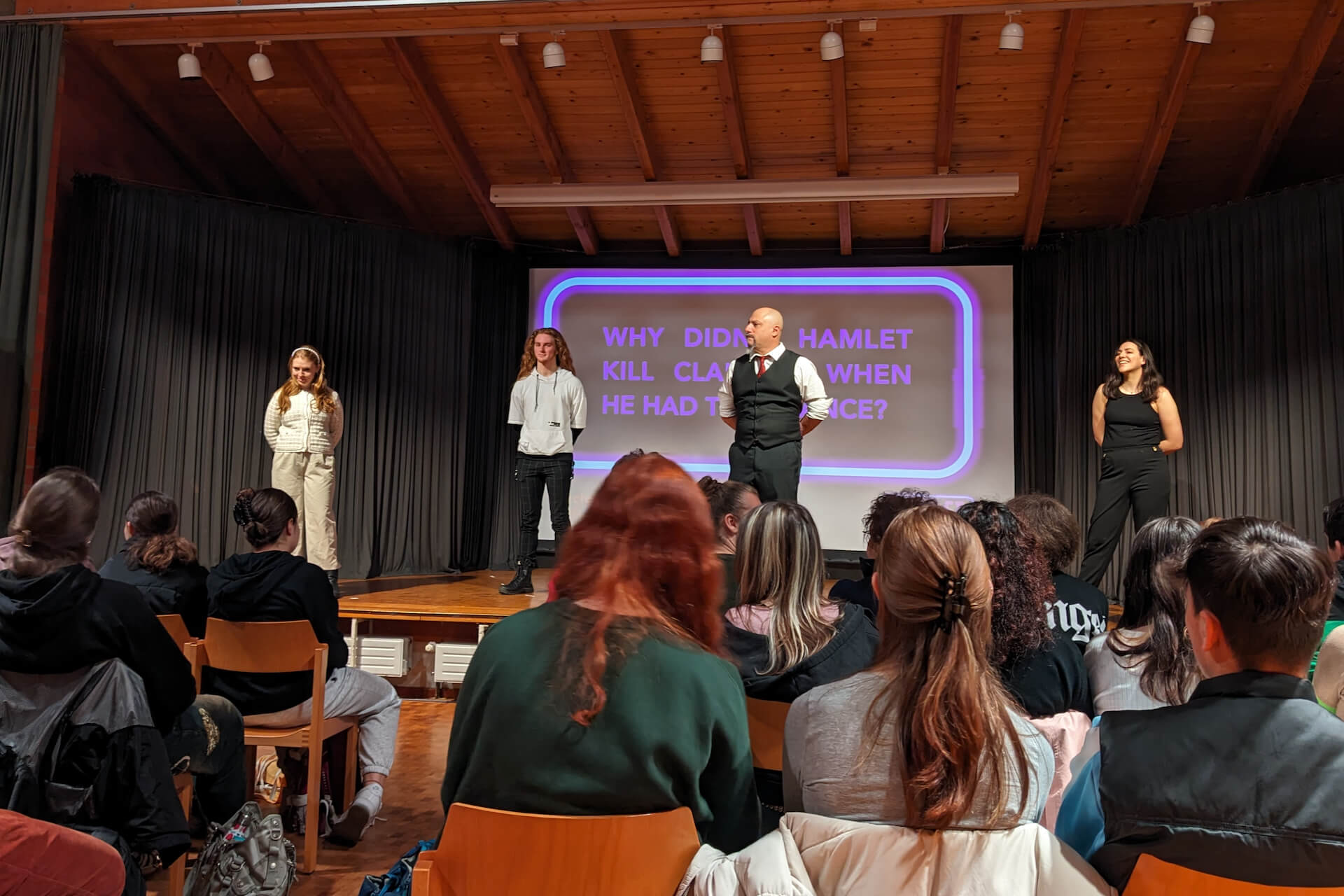
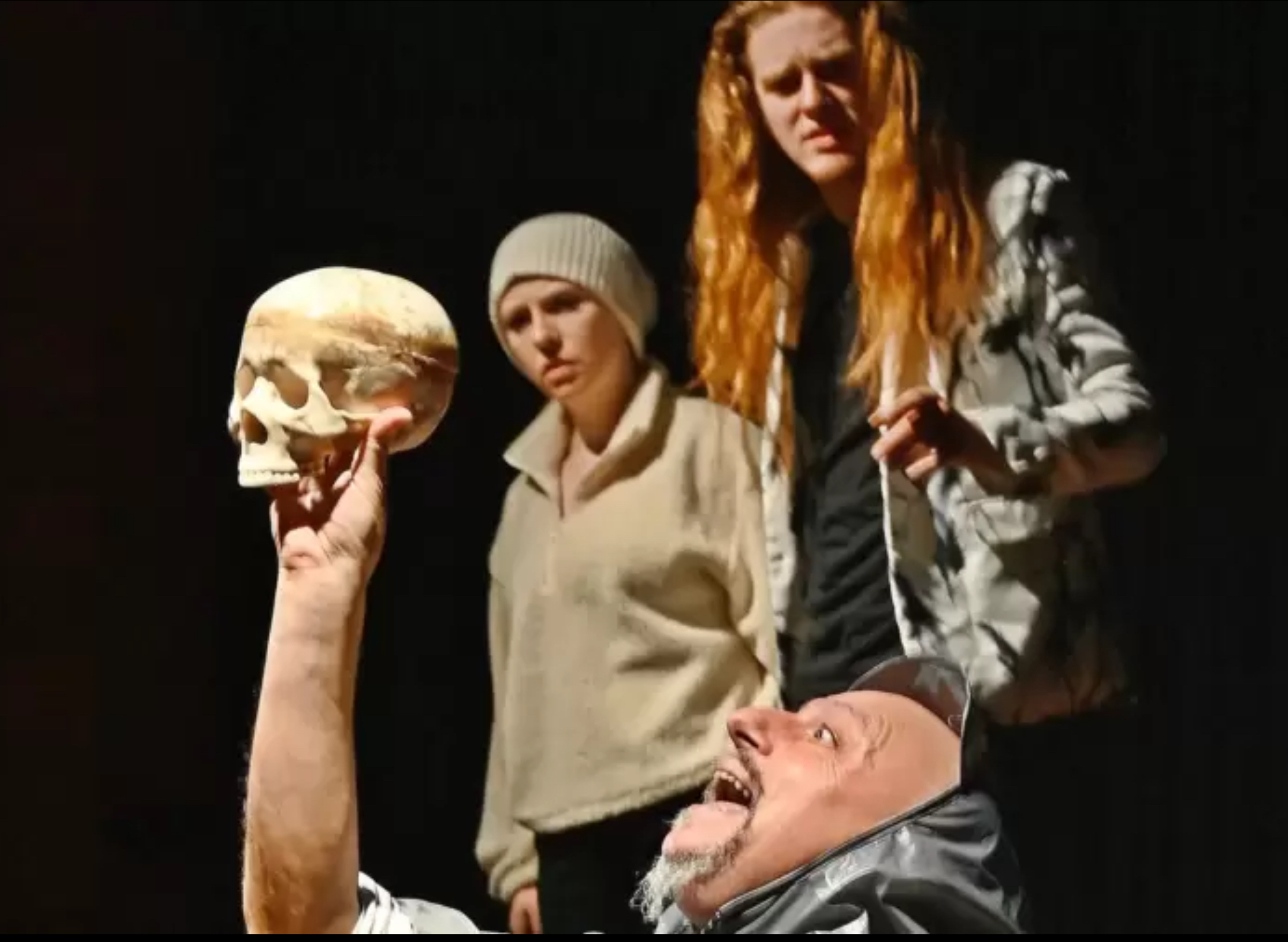
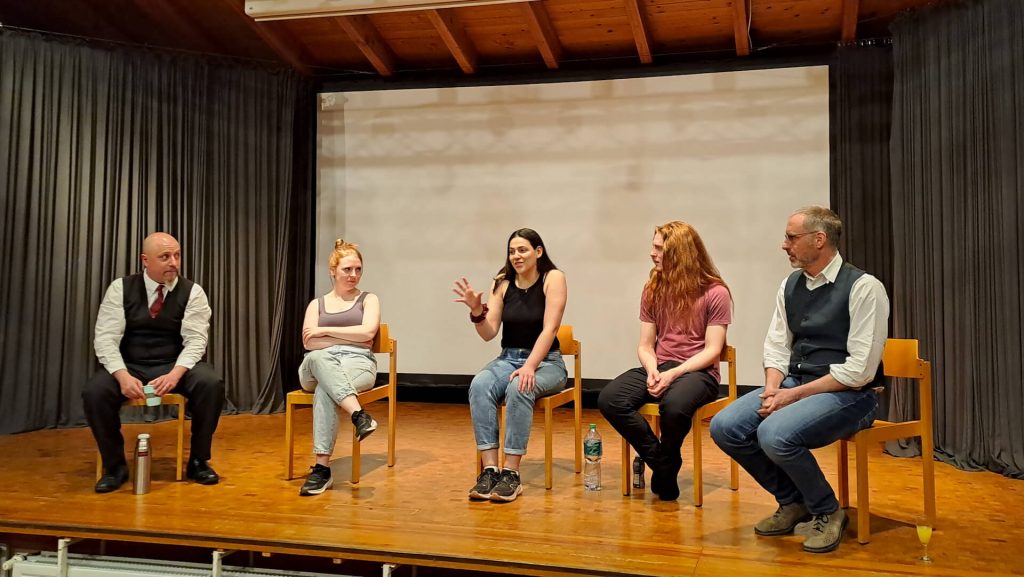
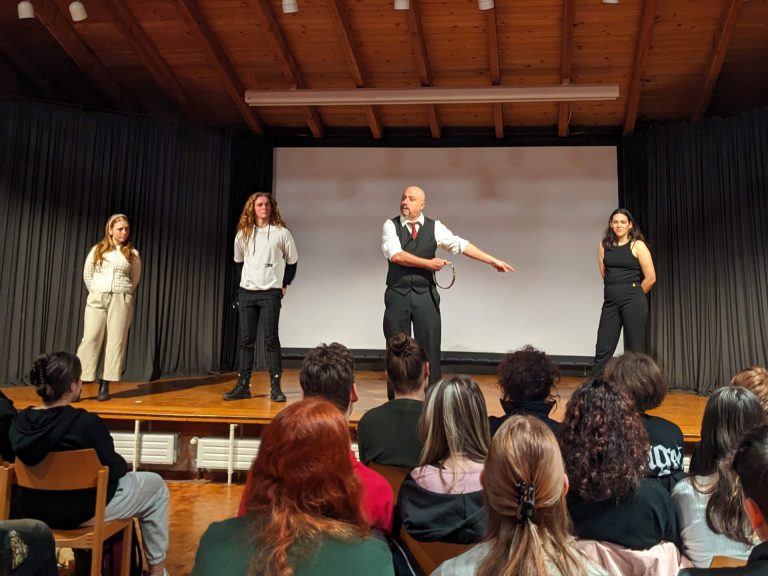
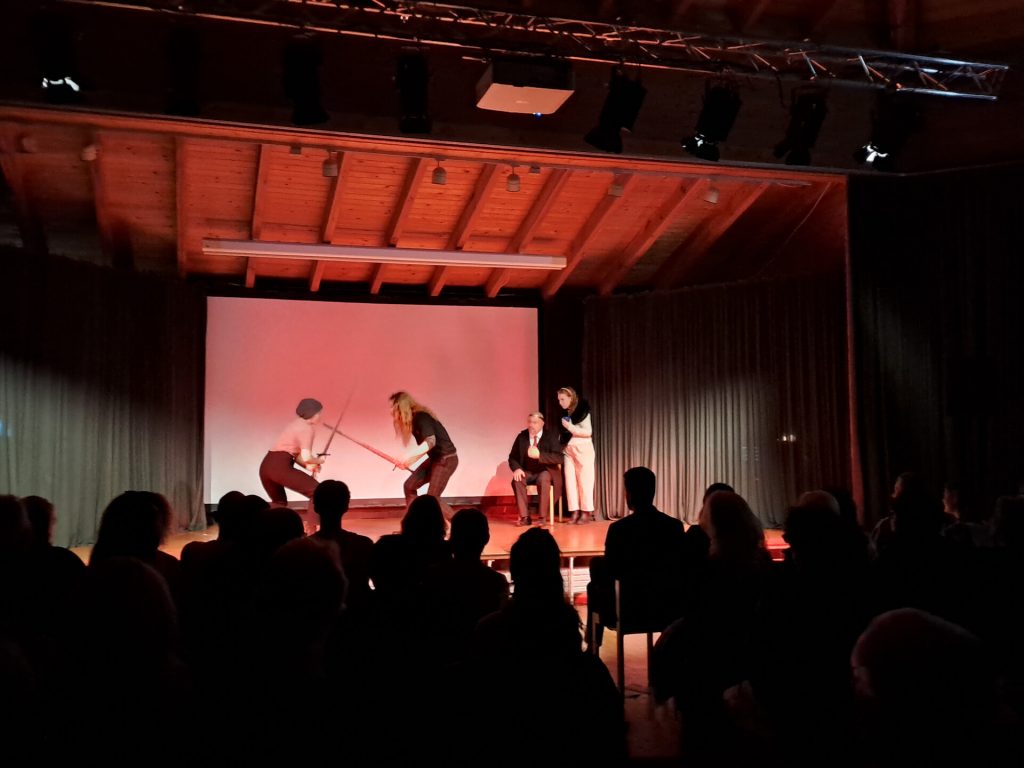
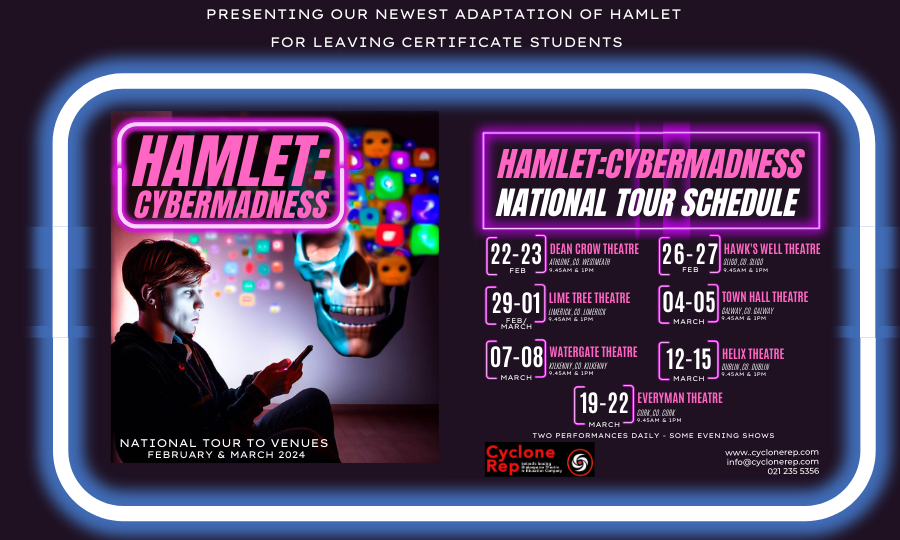
The production updates hamlet for a modern audience focusing on incorporating educational material surrounding the leaving certificate exam questions. This particular interpretation of the text focuses on the portrayals of mental health in the context of both history as of Shakespearean times and in the modern era. Back in Shakespeare’s day, many mental health problems were simply labeled as ‘Madness’, a key theme in Hamlet. In this production they explore that young Hamlet’s 'madness' stems from his addiction to Social Media and an Anxiety Disorder resulting in feelings of anxiety, paranoia, isolation and depression.
This production is by Cyclone REP Theatre Company and it contained cast of only 4 actors on stage (Kyle English, Shannon Ayako Martin, Rosey Hayes and Marcus Bale), each playing multiple characters (except Kyle English who played Hamlet throughout the production). The audio-visual (AV) elements also featured actor Shane Casey as Osric in Video News Reports summarising the plot as it happens throughout the show and relating it back to leaving certificate exam questions. The Shakespeare sessions are directed and adapted using original material by Dr. Peadar Donohoe. The handouts given to the audience were designed by Marcus Bale and edited by Cal Duggan.
The production in question began in 2019, however it was cut short due to Covid-19. This production made a return in February of 2024, when Hamlet had returned to the leaving certificate syllabus, and during this time period it spent two months travelling across Ireland and preforming in various theatres all over the island. After its hugely successful run in Ireland, the production then went on to tour Germany during April of the same year.
This adaptation of Shakespeares work continues with the theatre company’s mission of presenting the Shakespeare to new audiences in an exciting, relevant and relatable way. It actively provides the opportunity for audiences to discuss their thoughts on the performance with the actors in a structured way that ensures that the themes discussed will align best with the probable exam questions that the audience may receive during their leaving certificate exam. It gives the students a chance to voice their opinions on the characters, thus keeping them engaged and informed on the production’s content and solidifying the theatre company’s aims for the production.
Through the use of modern technology the audience experiences an innovative take on this timeless classic which seeks to connect with students by bringing Hamlet and Shakespeare’s language into the context of their world and times.
CyberMadness’s use of AV technology as a means of connecting and engaging with their student audiences helped solidify their aims of updating this Shakespearean text for a modern audience’s understanding of the world. The cast also paused the performance at various key scenes in the play to discuss with the audience the key elements of the performance in terms of the text while remaining focused on the probable exam questions, this allowed for a live discussion between the actors and the audience through the use of fourth-wall breaks which allowed the audience to provide live feedback on the performance and themes. The audience was also presented with a resource handout and a pre-show questionnaire that contained theme notes and character choices from the production. The pauses also included activities such as a character hot-seat which allowed the audience to question the character of choice as if they were on trial. They also paused during Act 3 scene 4, to reimagine the scene as a ‘what if’. What if: Gertrude had told Hamlet the truth about her relationship with Claudius, would she have said said something that could convince Hamlet that marrying Claudius was the best for the Kingdom and themselves? They also mention that as Gertrude doesn't have any soliloquies in Hamlet, where the audience get to hear her inner thoughts and motivations, there are number of potential responses to this question; which in turn, incorporates the theme of the role of women in the patriarchal world.
This is a collection of taxonomy terms that allow a type of immersive or XR performance to be categorised.
